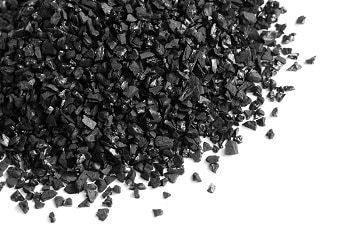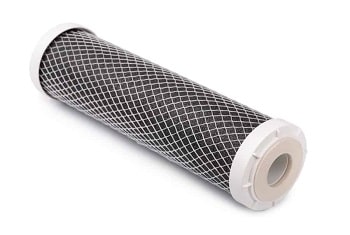You have been putting off getting a water softener for quite some time but you know that it is about time for you to finally get one to solve your hard water problem. You have also noticed a slight sulfur smell in your water, will a water softener remove sulfur from your water as well as the hardness?
A standard water softener does not contain media that will remove sulfur from your water. Although water softening resin will remove hard minerals from your water, a standard water softener will do nothing to remove hydrogen sulfide gas which creates a sulfur smell.
If the smell of sulfur is a problem with your hard water, you will need more than just a water softener to get that rotten egg sulfur smell out of your water. There are a few ways to remove sulfur from your water, but a basic water softener will not do the job.
What creates a sulfur smell in your water and why doesn’t a water softener remove it?
What is often referred to as a rotten egg smell in water is created by a gas that is released from the water when the water is exposed to the air. This gas called Hydrogen Sulfide is not affected by the water softener resin that is inside of a water softener.
Water softener resin removes hard minerals from your water because it has a charge which attracts the minerals in the water to its surface. Hydrogen sulfide gas is not a hard mineral and therefore it will pass through the water softener resin un-effected.
Essentially, hydrogen sulfide gas is tiny bubbles contained in the water that will stay in the water until the water is exposed to the air. When the hydrogen sulfide gas escapes from the water and mixes with the surrounding air, it gives the air the rotten egg smell that is associated with water that contains hydrogen sulfide gas.
If a water softener won’t remove sulfur smell from my water, what will?
The sulfur smell caused by hydrogen sulfide dissolved in your water must be removed by capturing the hydrogen gas before it is released into the air.
The most popular and cost-effective way to do this is to run the water through a bed of carbon.

Carbon is a highly durable substance that contains many pores and crevasses which is important for how it is able to remove gases from water.
As water passes through the bedding of carbon, gasses like hydrogen sulfide will get trapped in the pores and crevasses that are in the carbon granules.
As long as the water passes through a sufficient amount of carbon to capture all of the hydrogen sulfide gas contained in it, the water will emerge from the carbon-free of the gas that creates the sulfur smell.
A sulfur removing system uses bedding of carbon to remove sulfur from your water and it cleans the carbon periodically so that it can remove sulfur gases over and over again.
Are there any water softeners that will remove sulfur smell from my water?
There are a few water softeners out there that claim to be sulfur removing water softeners and they may work fine for a short while, but beware!
Some companies will mix carbon with standard water softener resin in an attempt to make a water softener that will not only soften your water but it will also remove any odors that you may have in your water.
A big problem with mixing carbon with water softening resin is that the carbon will not get cleaned as well as it should when the water softener regenerates. This means that the carbon will not be effective at removing gasses from your water for very long.
In addition to the shortened effectiveness of the carbon, the non-circular carbon grains can block the spaces between the water softener resin which may cause a loss in water pressure.
When the carbon becomes ineffective or your water pressure drops, the resin and carbon mix will have to be replaced and this will most likely be more often than getting a separate carbon filter system that will clean the carbon thoroughly enough to make it last much longer than if it was mixed with water softener resin.
This resin and carbon mix may have to be replaced as often as every 3 to 5 years because the small amount of carbon used in this mix can become ineffective far quicker than the amount used in a separate backwashing carbon filter.
And worst of all, you could end up paying as much as $600 to have the resin and carbon mix replaced. For that price, you could purchase a brand new backwashing carbon filter which would have done a better job of removing sulfur smell from your water in the first place.
There is a very special water softener resin that has been found to be helpful at reducing very low levels of sulfur smell in the water, but its sulfur-reducing effectiveness is so little that the manufacturer does not guaranty or even make the claim that it will have any effect on sulfur smell in your water.
A water softener will work best and last longer if it only has to do what it is intended for, and that is to remove hard minerals from your water to make it soft.
Can I add a filter to my water softener to remove the sulfur smell?
An inline carbon filter will work just fine for removing low levels of hydrogen sulfide gas from water which will take care of sulfur smell for a while, but significant levels of hydrogen sulfide gas in your water are best handled by the use of a separate backwashing sulfur filter.

Sulfur removing carbon filter in conjunction with a water softener will efficiently and thoroughly soften your water and remove sulfur smell causing hydrogen sulfide gas from your water.
If you have hard water, you should get a water softener. If you have a sulfur smell in your water, a water softener will not be the solution but a carbon filter might be.

